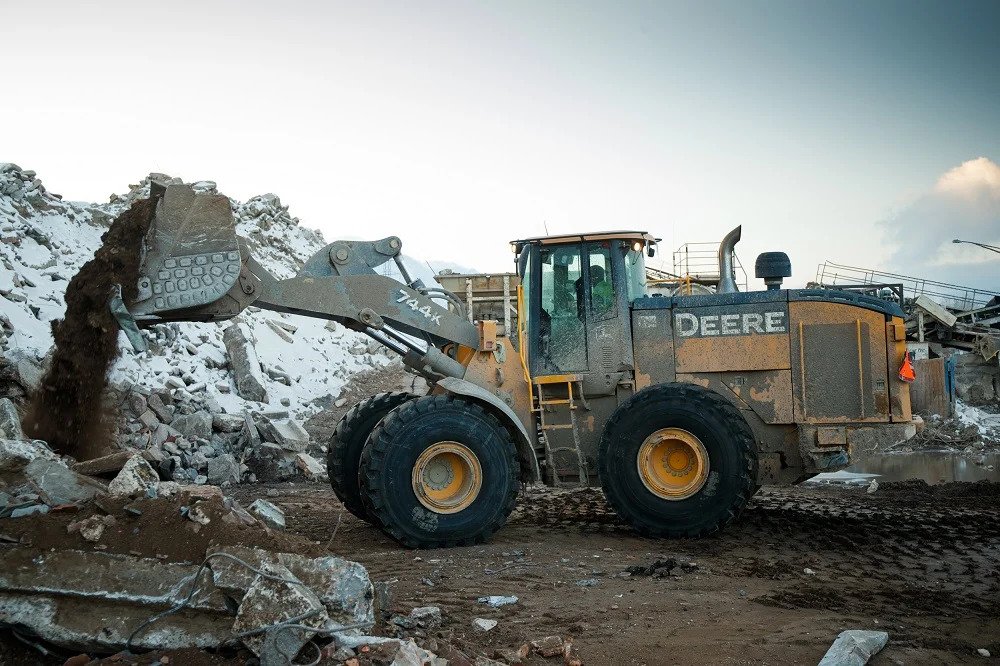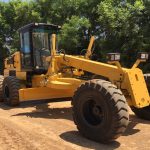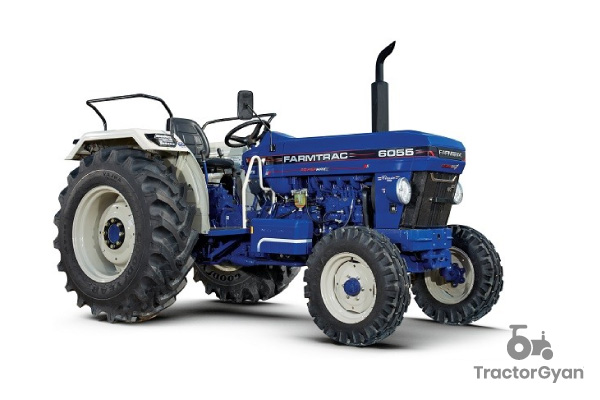The tires are an important component of wheel loaders that are often overlooked. However, the choice of tires has the potential to influence the productivity, longevity, and performance of a machine. The appropriate tire choice can make the difference between a project running well or encountering unneeded obstacles, whether it is on the most difficult construction sites or the most demanding industrial yards. More than just rubber on the ground, it serves as the base around which productivity and efficiency revolve.
Role of Tires in Wheel Loader Performance
Tires are the interface that directly impacts how a wheel loader functions. The type of tires in a wheel loader has an impact on a vehicle’s traction, stability, load-bearing capability, fuel efficiency, and overall mobility. When you carefully choose the tires in a wheel loader for sale, it can handle a variety of terrains with assurance and effectiveness, ensuring that the equipment operates at its peak efficiency and that operators can carry out their responsibilities safely.
A wheel loader, for example, can operate easily on muddy ground without becoming stuck if it has the correct tires. It can carry huge loads up hills without losing traction and can function consistently on both soft and hard terrain with specific tires. The appropriate tire choice allows the loader to undertake a variety of tasks with ease, maximizing its capabilities.
Understanding the Varieties of Tires
The types of wheel loader tires are varied to meet various operational requirements. To load and unload materials, for example, conventional lug tires are adaptable and adequate. They offer a well-considered combination of traction and toughness. On the other hand, rock-specific tires with stronger sides and sharp treads are the best option for jobs involving rocky, uneven terrain. Such tires provide the traction necessary for slippery lands while preventing punctures and damage from sharp pebbles.
Other specialist tire types include smooth tires for use on asphalt operations, which decrease rolling resistance and lengthen tire life. Whereas the forestry tires with deep treads that assure traction in wooded regions while guarding against punctures from branches and debris.
Right Tires for the Right Terrain
The choice of tires for a wheel loader is heavily influenced by the terrain. Wider tires with deeper treads are necessary in conditions where soft or muddy ground is common. These tires can provide the necessary traction to prevent slipping by biting into the ground. On the other hand, smoother tires lower rolling resistance when driving on hard surfaces like concrete or paved roads, improving fuel economy and decreasing tire wear.
Maintaining stability and safety requires matching tire type to the terrain. On a given surface, poor tire selection might result in decreased performance, greater fuel consumption, and even potential accidents.
Consider Pressure and Load Capacity
The weight of the wheel loader also influences the selection of tires. A loader’s tires may experience earlier wear and a higher risk of failure as a result of being overloaded. To prevent excessive strain on tires, it is essential to know the loader’s load capability and distribute weights uniformly.
The right tire pressure is also a very important factor to consider. Larger contact patches on under-inflated tires can increase rolling resistance and fuel usage. On the other side, overinflated tires have a smaller contact patch, which may result in less traction and uneven wear. Tires operate best and last longer when you follow the guidelines from the manufacturer’s manual.
Keeping Longevity and Performance in Check
The ideal tire must strike a cooperation between short-term performance needs and long-term toughness. Due to the extra stress, tires made for large loads and excellent grip may deteriorate more quickly. On the other side, traction and handling may suffer with tires designed for durability.
It is important to ensure the correct balance. It involves analyzing the particular requirements of the tasks your wheel loader would handle. You can choose tires that improve both instant job efficiency and the tire’s overall lifespan by taking into account the frequency of high loads, the types of terrain, and overall performance expectations.
Tire Maintenance
Finding the ideal tire is only the first step of the process. For tires to operate as efficiently as possible, regular maintenance is necessary. You need to follow the following care during the maintenance of the tire.
-
Regularly check tires for wear, damage, and correctly inflated tires. Early problem detection can save minor difficulties from growing into larger, more expensive ones.
-
Keep your tires inflated to the correct pressure. Optimal load distribution and even tread wear are ensured by proper inflation.
-
To encourage even wear, rotate tires frequently. Performance and longevity can both be vulnerable to uneven wear patterns.
-
Correct wheel alignment prolongs tire life and eliminates uneven wear.
-
Regularly clean tires to get rid of dirt and other things that could speed deterioration.
-
Neglecting tire maintenance can result in diminished performance, decreased fuel efficiency, and the requirement for early replacement.
Conclusion
The choice of tires is a serious matter for all kinds of wheel loaders. The decision has an impact on both operator safety and fuel usage. You may make a choice that will significantly improve the productivity and financial performance of your wheel loader by being aware of the precise requirements of your projects. You need to consider the terrain, load capacity, and longevity while selecting the tires for your wheel loader. The performance of your wheel loader and the success of your project all begin with the correct set of tires.





